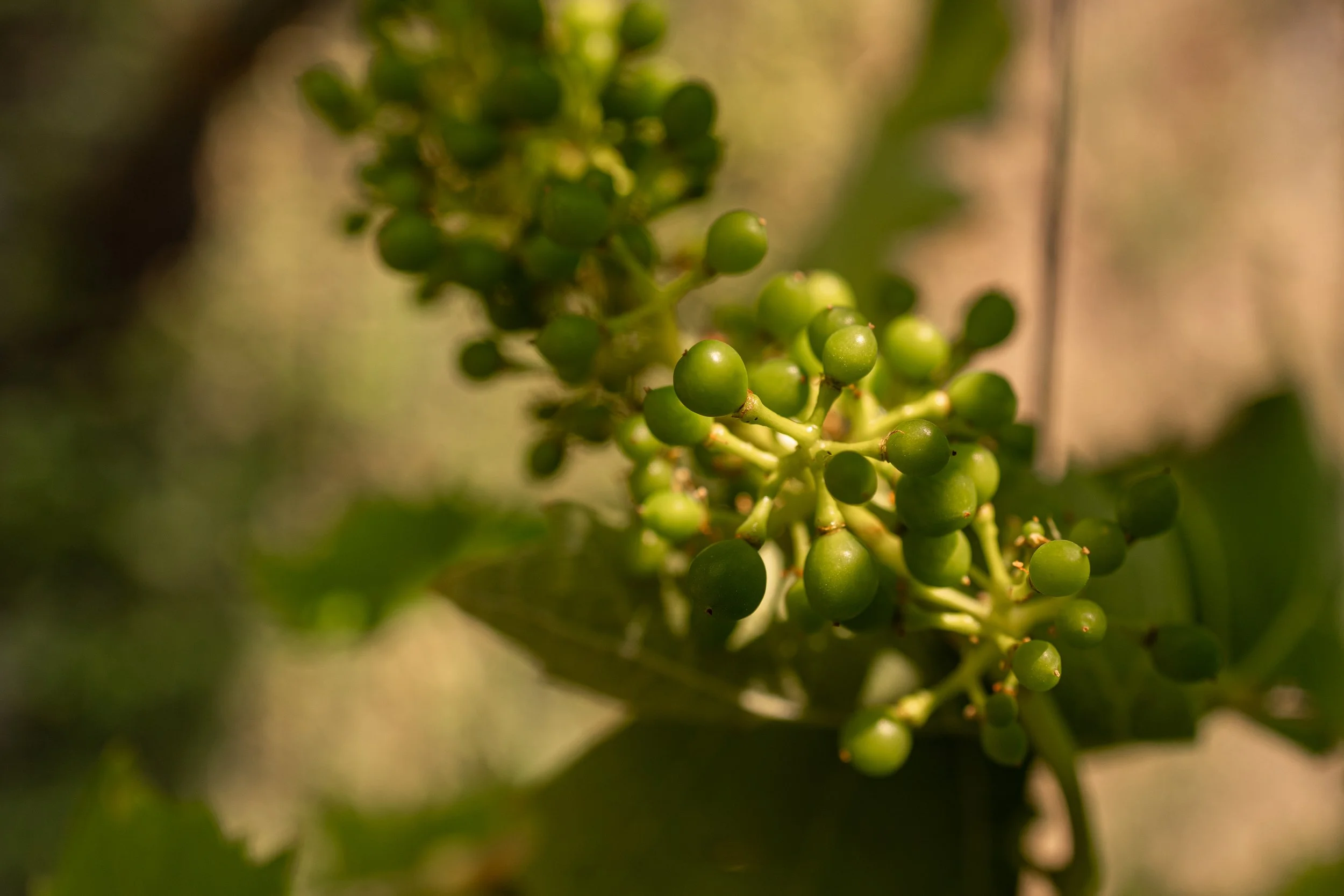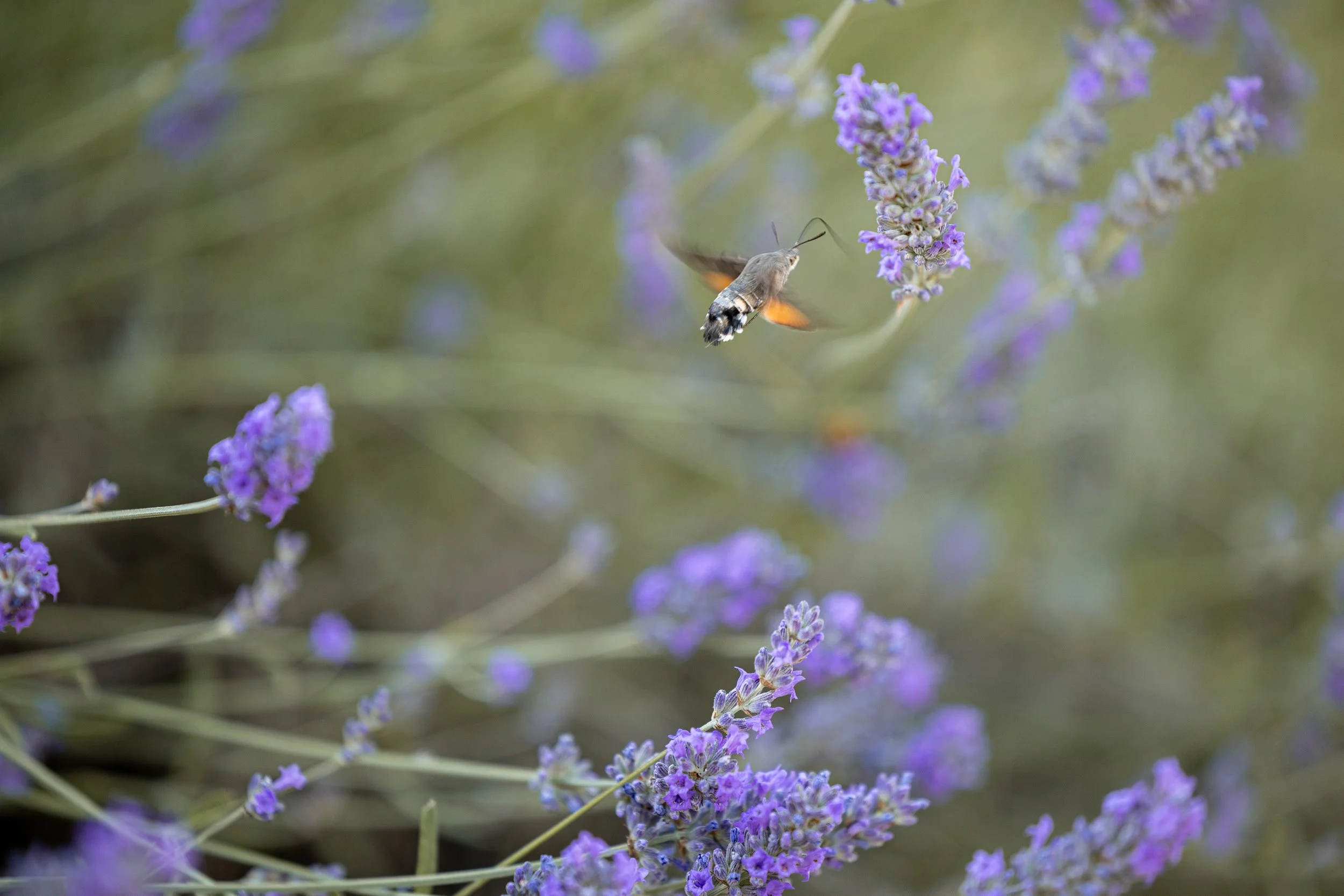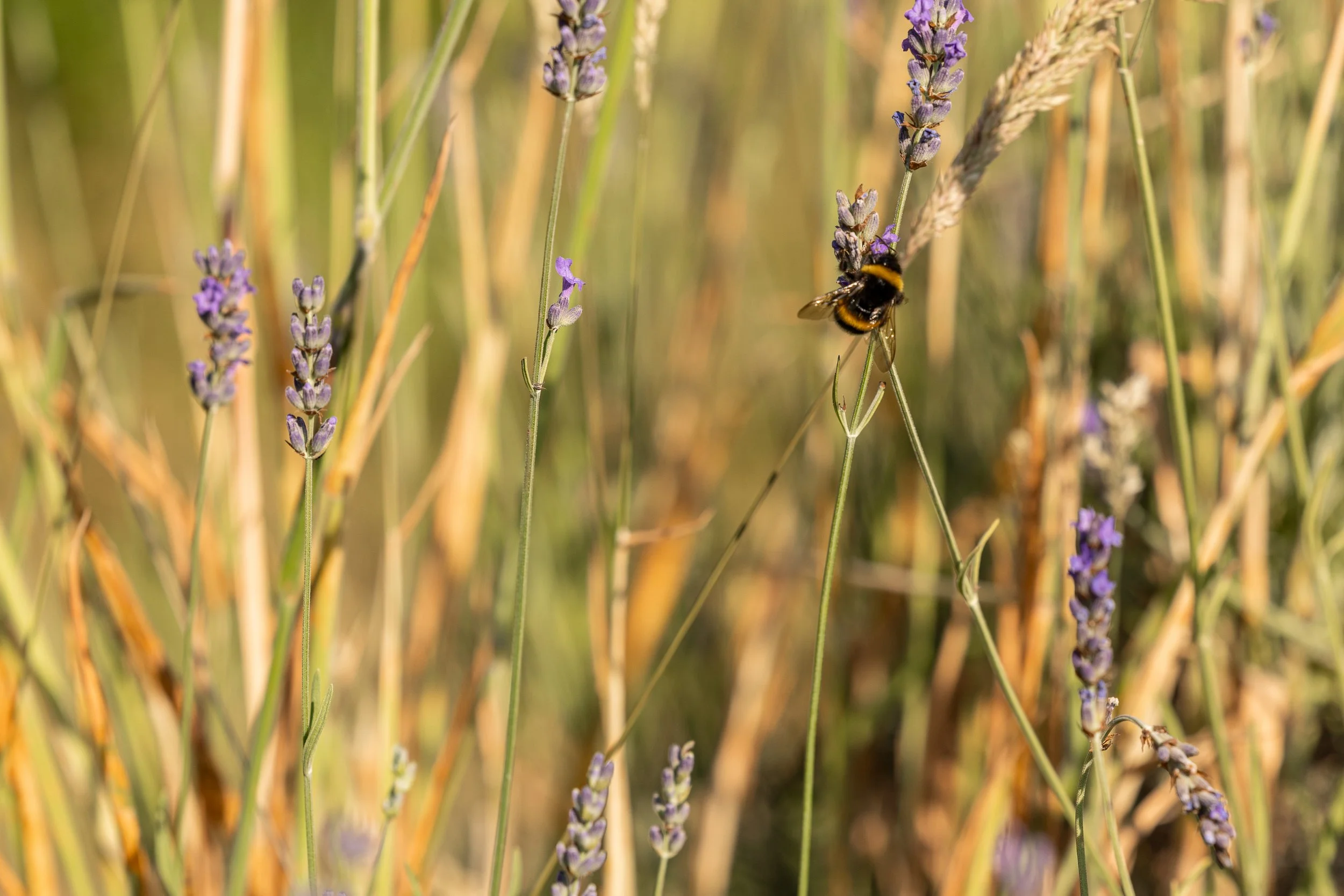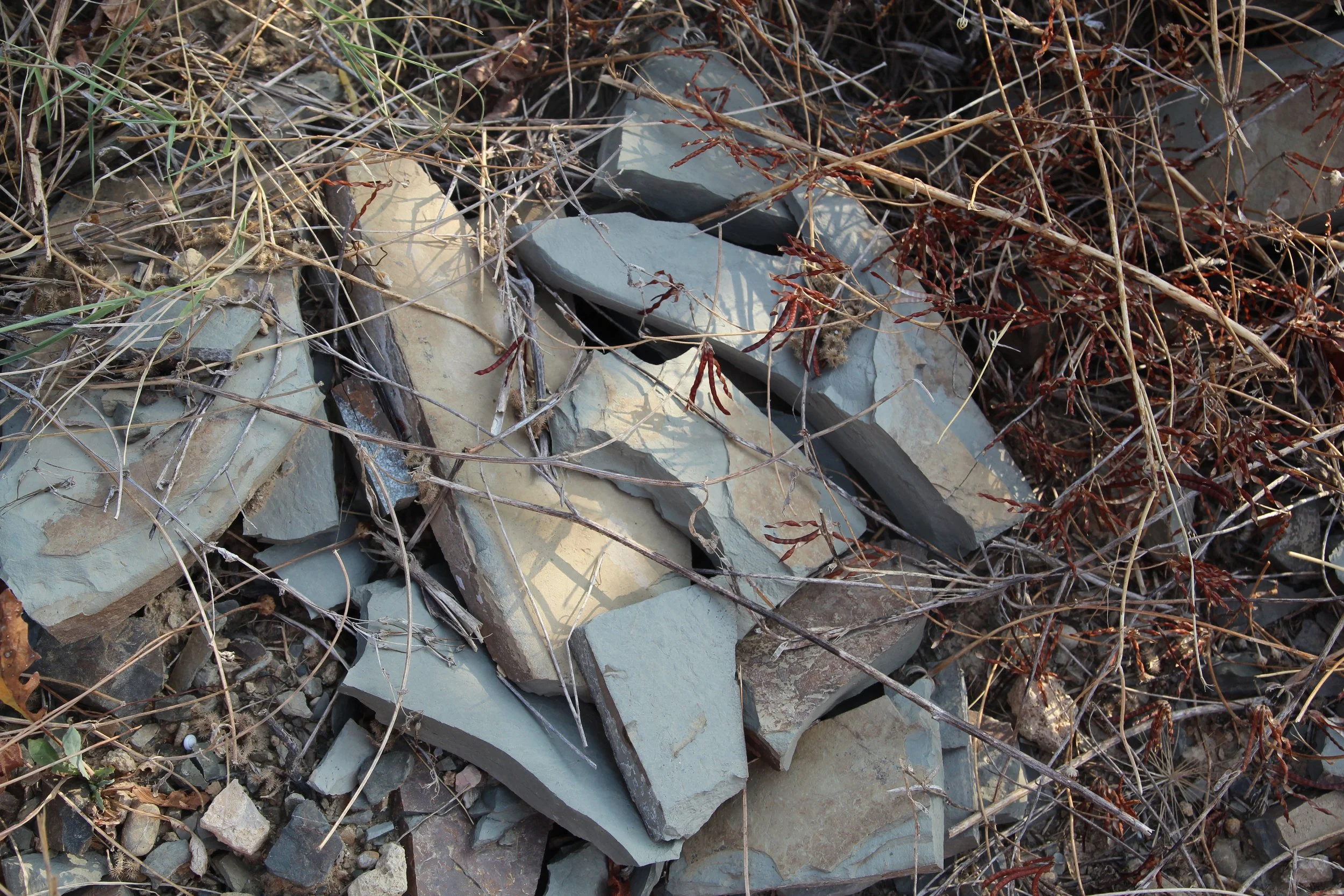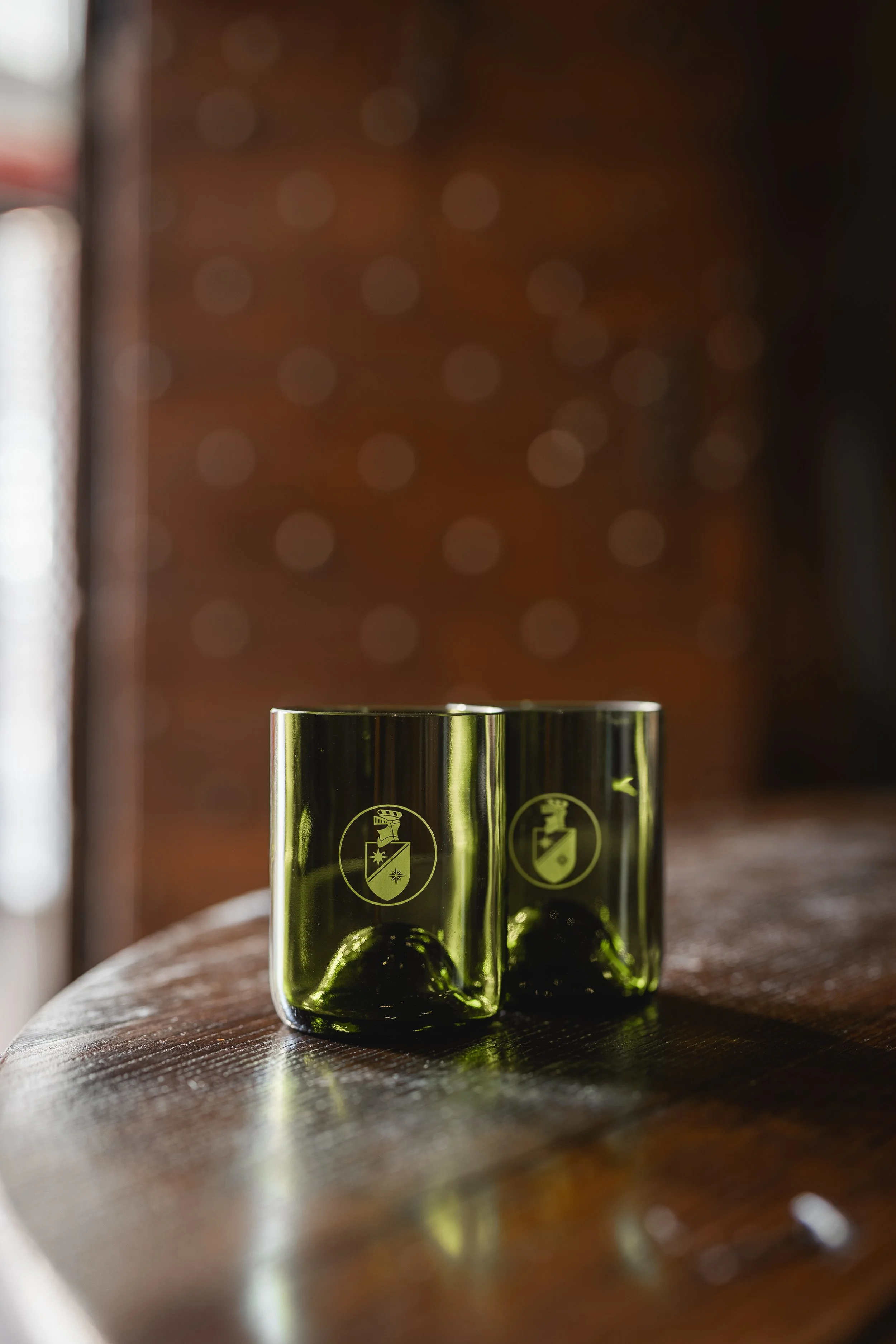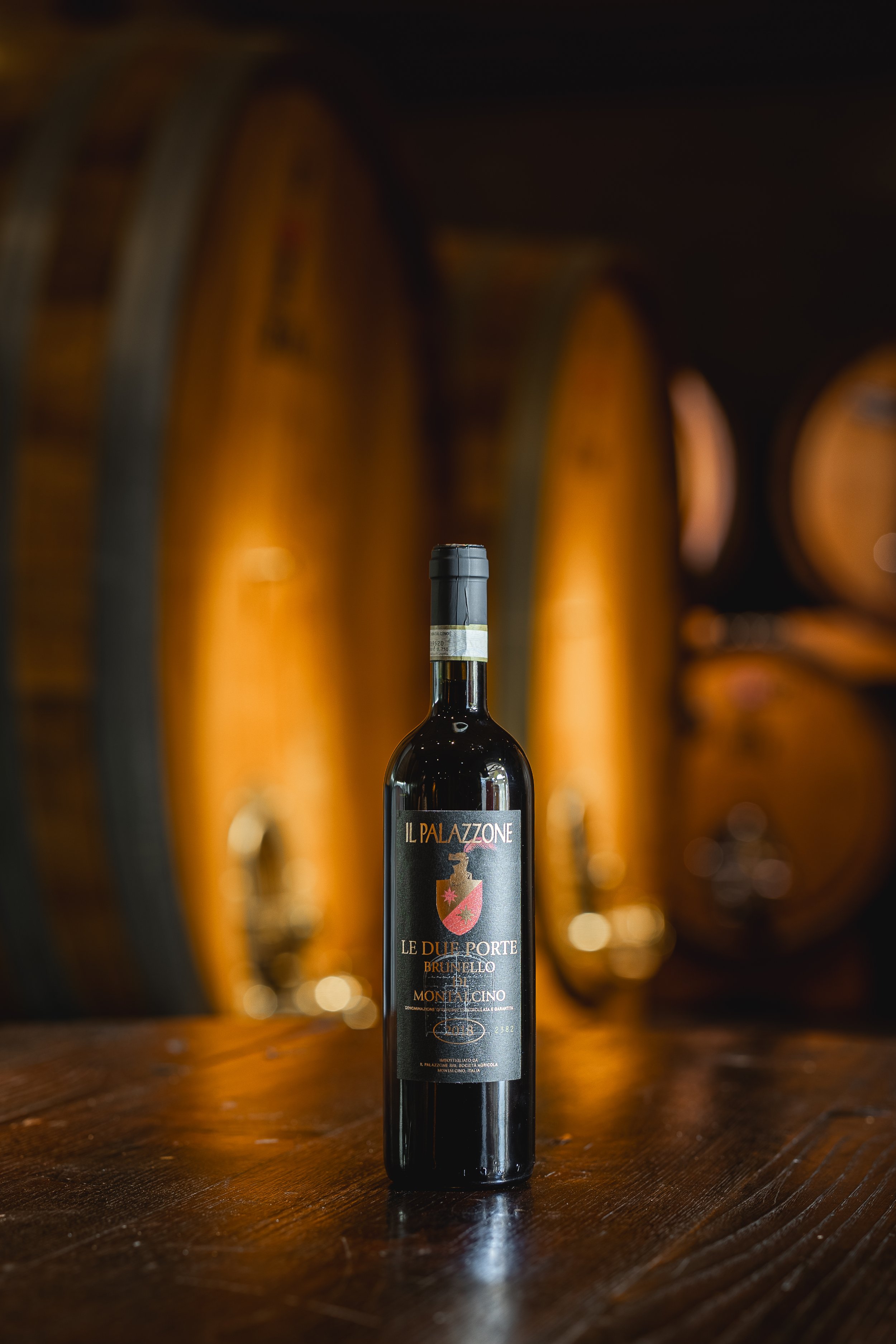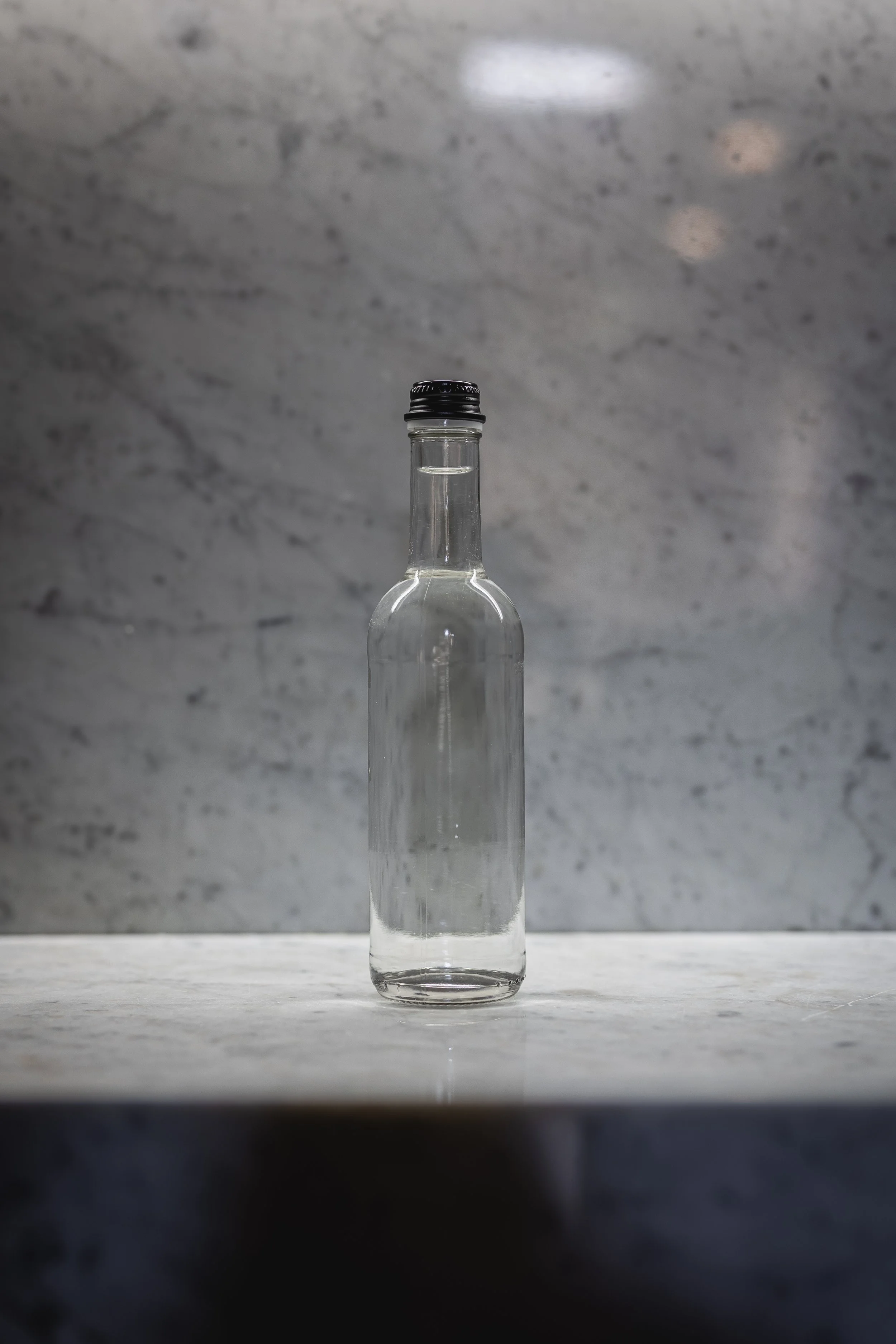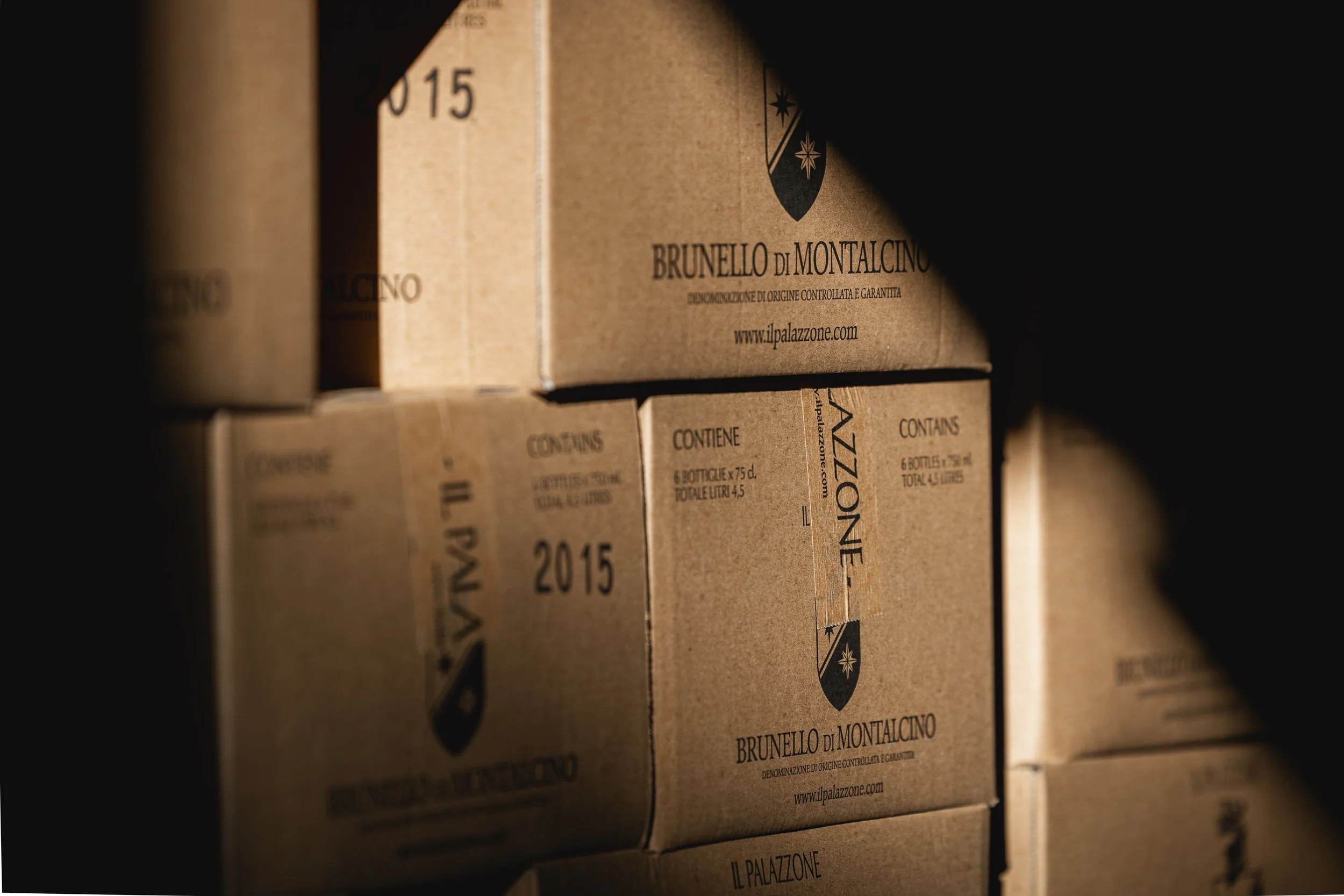Our Philosophy
Our team is committed to making the highest quality wine using traditional methods and approaches for the purest expression of Brunello.
More concerned with quality and tradition than volume, we strive to make the best of each harvest given the parameters of the weather, microclimate, altitude, soil and terroir, understanding the issues to maximize outcome.
We are committed to ecologically and environmentally friendly business practices and a positive workplace. We promise to deliver a wine of exceptional character and quality to make the most of your enjoyment, be it at an event, a celebration, or a weekday dinner.
“Il Vino si Fa in Vigna”
Responsible Agriculture
Il Palazzone practices what is known in Italian as agricoltura responsabile. Through regular assessments of the conditions each parcel, we analyze the factors that influence grape yield and quality (soil, topography, microclimate, vine health, etc.). Our vineyards vary widely in terms of terroir and exposition, so the individual approach ensures that any issues are identified and remedied promptly.
Although it is far too expensive for an azienda of our size and structure to obtain organic certification, we do our best to follow organic practices. Whenever possible, we effect manual operations and natural remedies rather than other treatments. While these choices are always more expensive, il vino si fa in vigna – wine is made in the vineyard – and these choices result in the high quality of our wines.
Cultivating Biodiversity
We make every effort to constantly replenish the soil and the ecosystem. You will see flowers, butterflies, ladybugs, earthworms and other creatures in our vineyard. On occasion we have even started a bug war to restore order. Rather than resorting to chemical solutions and their long-term impact on the water and soil, we continue to experiment with cover crops – nitrogen-rich leguminous plants such as lupins and fava beans - which are then plowed into the earth to enrich and fertilize the soil. Cover crops have many positive aspects: reduce erosion, improve water absorption and increase soil organic matter, all of which enhance soil structure. Ideally, this method leads to increased soil carbon sequestration.
Winemaking
No set dates determine the progress of the wine from bud to bottle. Instead, the calendar reflects the weather, the condition of the grapes and the ensuing development in the cellar. Good weather, good decisions and good fortune are the critical ingredients for a great wine. Our wines are reflective of their season, their soil and their climate and each tells its own tale of the individual vintage.

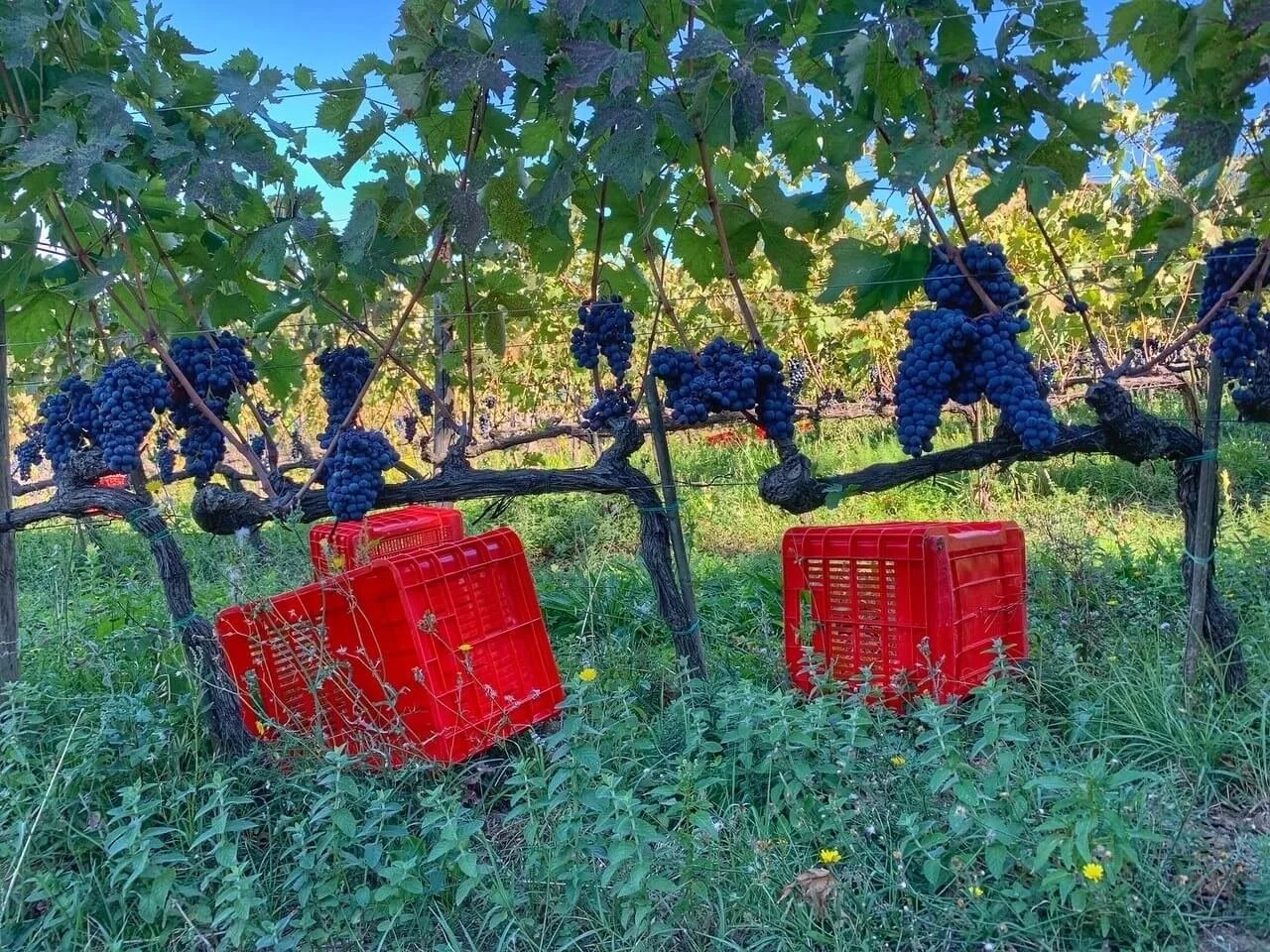

Harvest and Wine Making
Vendemmia
We prune, green harvest and select our grapes on the vine throughout the year so as to have the best possible selection for each vintage. We pick by hand using small 16 kg crates so that the grapes are in peak condition when they reach the cellar. The maximum yield allowed for the production of Brunello is 8.000-7.000 kg per hectare, however due to our rigorous selection process, we rarely reach that yield. Most grapes are sorted on the stem to maximize control and which allows hand-sorting of the grapes prior to fermentation. The grapes are either vinified in cluster form or destemmed after the sort based on the characteristics of the vintage. Our finest grapes are destined for the production of our prestigious Riserva.
Fermentation
Fermentation takes place in 20 or 41 hL cement tanks or 50 hL wood barrels. Because each vineyard is vinified separately, we can determine the optimal tank or barrel for each lot of grapes given the characteristics and volume of that particular fruit. When choosing the appropriate vessel, cement tanks offer increased structure opportunities that can give the grapes a scaffolding to construct a wine of complexity and elegance during their aging time in wood. Alternatively, we can consider that, not only are the oak tannins an anti-oxidant, the micro-oxygenation inherent in the wood can contribute increased aromatic and tannin stability. The best method depends entirely upon the grapes that arrive in the cellar and will be different for each harvest.
Aging
Traditional aging times for Brunello are our benchmark, and our wine usually receives thirty to forty months in wood (two years required by the DOCG regulations), to be released in January of the fifth year after harvest. Riserva requires an additional year of aging. Le Due Porte spends about a year more in the aging room than the vintage Brunello. Il Palazzone wines are created with a long bottle aging period in mind, promising to mature and improve over the years.
Environmental Concerns
Carbon Footprint
We are committed to monitoring and reducing our carbon footprint. As far as possible, building materials are recycled, upcycled or quarried on-site, and a multitude of techniques are employed to maximize energy efficiency.
Rainwater Recovery
Given that Brunello is obligatory dry farming (no regular irrigation) rain is a critical factor in the health and success of our vineyards. In addition, to the maximum extent possible, we recover rainwater for estate use.
Recycling
Where possible we reuse and recycle. Aside from daily recycling and allocation, visitors to the cellar often admire the wather glasses made from our old bottles.
Bottles
In 2010 we switched to using light glass bottles. This can lessen the shipping load by 2.5 kg (5.5 pounds) per case.
Plastic
We do not use single use plastic bottles at Il Palazzone. We use glass bottles for water in the tasting room and have elimated the use of other plastic wherever possible.
Packaging
We have ruled out polystyrene wherever is possible and use only cardboard and wooden packaging. Our boxes are made of 80-85% recycled cardboard. We have switched to sustainable capsules and paper tape and, for our Rosso del Palazzone, to cork derived from sustainable and renewable sugarcane-based raw materials.


